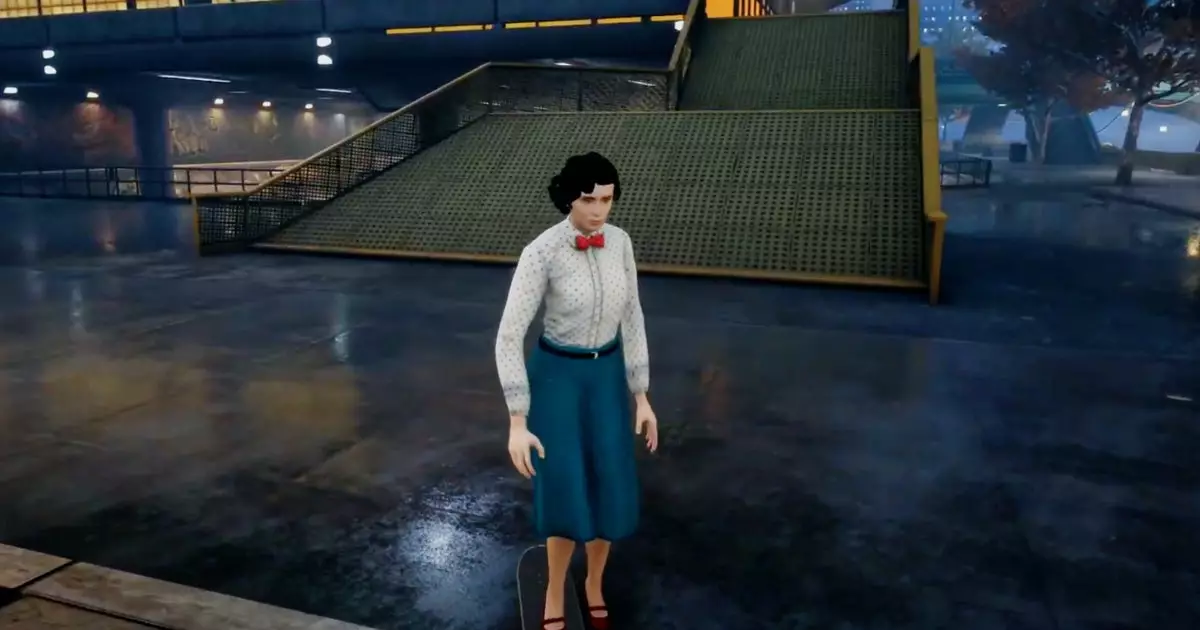In recent years, the gaming industry has reaffirmed its unique ability to evoke powerful feelings of nostalgia, transforming re-releases and remasters into cultural phenomena. Tony Hawk’s Pro Skater 3+4 exemplifies this trend, capitalizing on a fervent community that relishes reliving classic gameplay with a modern twist. While the core game offers the familiar thrill of high-flying tricks and sprawling skate parks, it is the vibrant modding community that truly pushes the boundaries of what’s possible, breathing new life into the nostalgic experience with creativity unbound. This phenomenon underscores the resilience of gaming culture and its capacity for self-reinvention, illustrating that fans are not mere passive consumers but active contributors shaping the gaming landscape.
However, this resurgence of nostalgic titles can be a double-edged sword. While it celebrates the original vision, it also invites a wave of experimentation that sometimes strays into bizarre or irreverent territory. The sheer audacity of characters like Tommy Angelo from Mafia and Elsa from Frozen sharing skateboards signals a crossover culture that blurs the lines between different genres and fanbases. These mods serve as digital fan art, a testament to how game mechanics become a canvas for boundless imagination. This ongoing remix culture fosters a sense of community and shared ownership that keeps aging classics relevant and engaging in a rapidly evolving industry.
The Creative Spirit of Modding: From Practical Enhancements to Whimsical Art
Beyond nostalgia, the modding scene’s most remarkable trait is its capacity for reinvention. The array of character swaps, custom skins, and gameplay tweaks showcases a community of passionate developers who see beyond the original framework, repurposing games in surprising ways. Take, for example, the case of Huckleberrypie, a modder whose work elevates mere character customization to a form of storytelling art. Their creations range from cultural icons like Tony Soprano to fairy-tale characters such as Snow White — each transformed into skating avatars that challenge traditional notions of character identity.
One particularly intriguing character is Mary Poppins from the 2018 film, depicted tearing up the park with her skateboard. This mod is more than just a visual stunt; it humorously inserts a beloved, fictional figure into an unlikely sport, complete with a backstory that humanizes her journey into skating. The narrative, depicting Mary’s retreat into rock music and skateboarding amid personal turmoil, exemplifies how modders craft elaborate lore to deepen the immersion and enjoyment of their creations. This approach transforms superficial character swaps into a form of digital narrative art, where humor, cultural commentary, and fan affection intertwine.
Moreover, the practicality of mods—such as quick-start enhancements or free roam cameras—demonstrates a commitment to improving gameplay quality and user experience. These modifications reflect a nuanced understanding that customization isn’t solely about aesthetics but also about accessibility and convenience. The addition of elements like Master Chief riding a mini-tank exemplifies the playful chaos that defines gaming modding: a room for absurdity, fantasy, and pure entertainment that surprises even the most jaded players.
The Future of Fan-Driven Innovation in Gaming
With a thriving modding community already pushing the boundaries within days of release, it’s clear that player-driven innovation is fundamentally shaping the future of gaming. This trend challenges traditional development boundaries, showing that the most enduring games gain fresh relevance through community creativity. The intersection of nostalgia and innovation creates a feedback loop, encouraging both developers and fans to co-author the evolution of their favorite titles.
Furthermore, the proliferation of character swaps and gameplay tweaks signals a broader cultural shift—one where players seek personalized, dynamic experiences rather than static, pre-packaged content. As platforms bolster their support for modding, game studios might begin to view player creativity not as a threat but as an invaluable extension of their artistic vision. Ultimately, this democratization of content creation could redefine how developers approach game design, fostering a more inclusive and participatory industry.
In embracing this community spirit, gaming transcends its traditional boundaries, becoming a collaborative art form where fans are both consumers and creators. Whether it’s Mary Poppins shredding through parks or Master Chief commandeering a mini-tank, these mods embody the limitless potential that emerges when passion meets technology. By harnessing the boundless creativity of gamers, the industry can craft experiences that are not only nostalgic but also perpetually innovative, ensuring the legacy of these iconic titles endures in new and exciting ways.


Leave a Reply